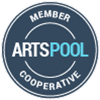Understanding Urban Weather Systems and Designing for Climate Change
Moderated by Elliott Maltby, Partner, the thread collective & iLAND board member
Presented by:
Philip Orton, Research Scientist, Stevens Institute of Technology
Victoria Marshall, Assistant Professor of Urban Design, The New School
and
Higher E.D. (Ecology + Dance), 2012 iLAB Residents:
Liz Barry, Public Laboratory for Open Technology & Science
Jessica Einhorn, Dancer, Scientist
Lailye Weidman, Choreographer
Micro to Macro Movement in New York City waterways from East Tremont to Newtown Creek
Moderated by Carolyn Hall, Dancer, Historical Marine Biologist & iLAND board member
Presented by:
John Waldman, Professor of Biology, Queens College
and
Follow the Water Walks, 2012 iLAB Residents:
Rebecca Boger, Assistant Professor, Department of Earth &
Environmental Sciences, Brooklyn College
Damian Griffin, Education Director, Bronx River Alliance
Paloma McGregor, Choreographer
